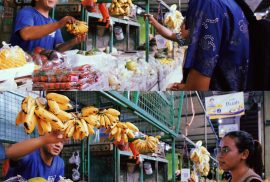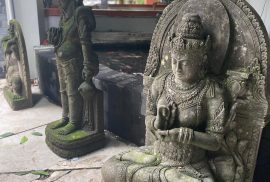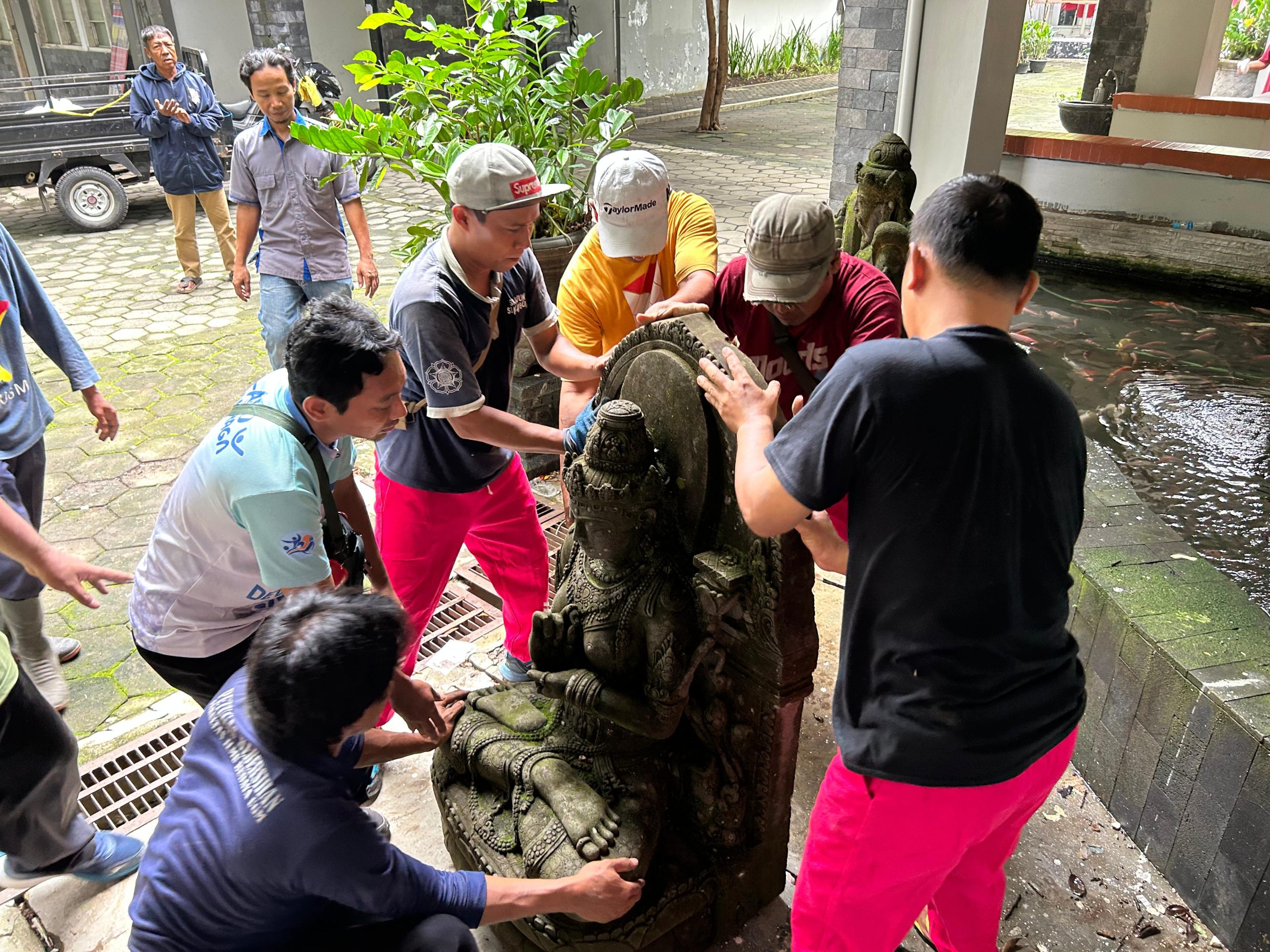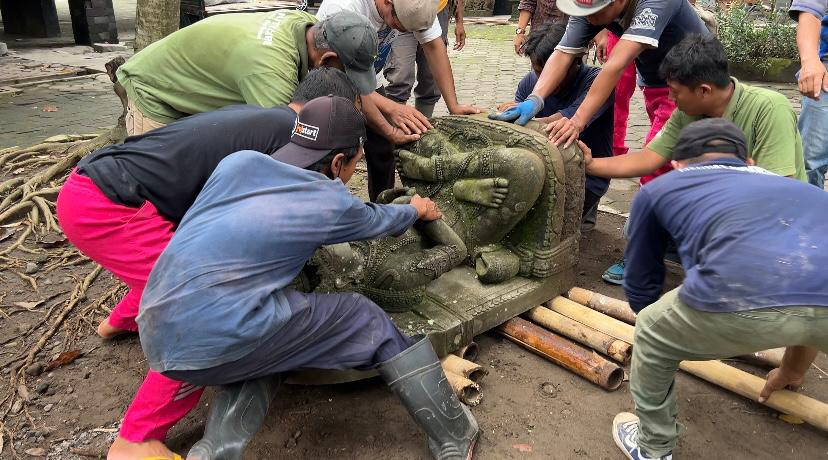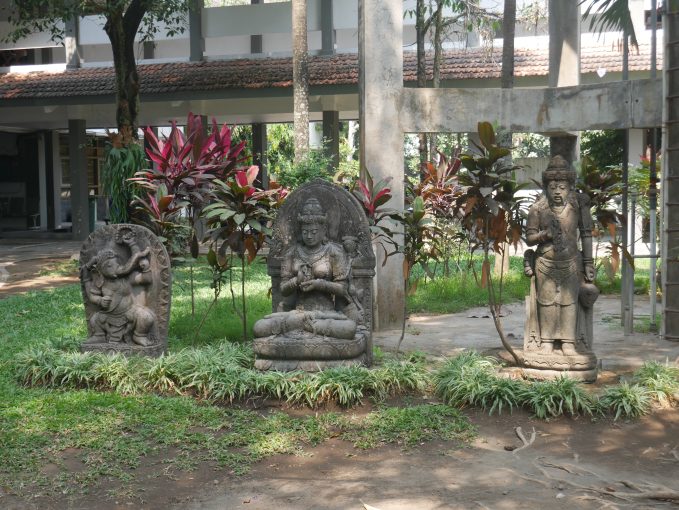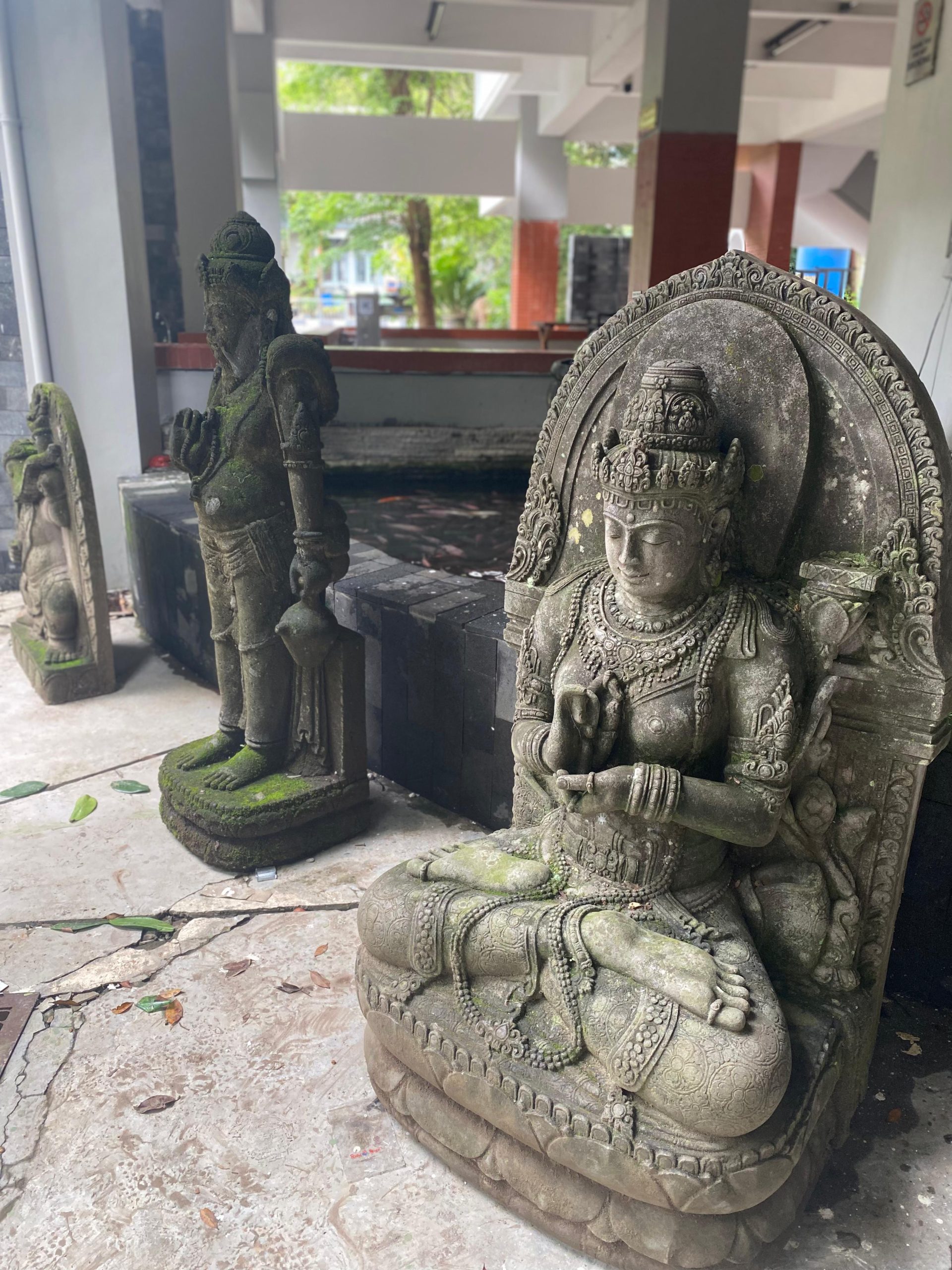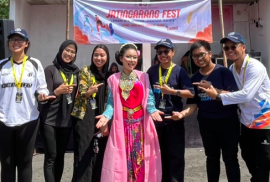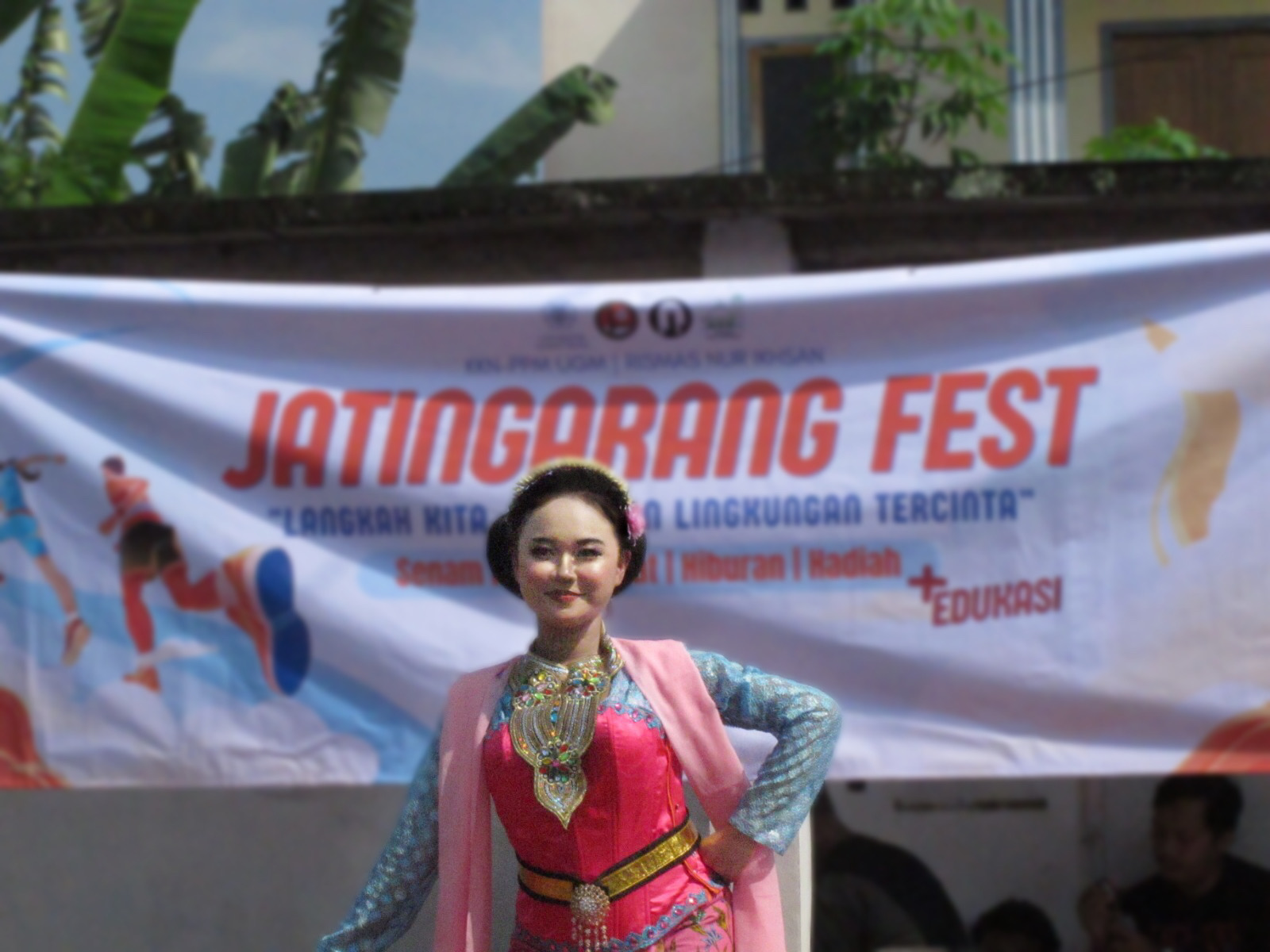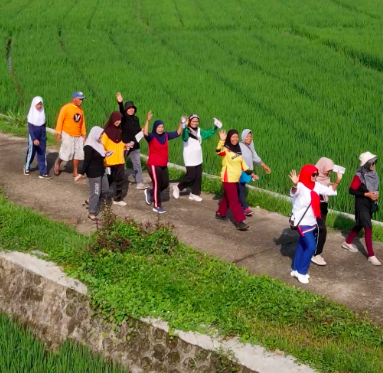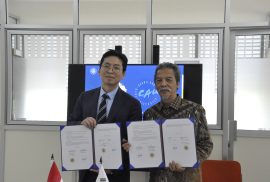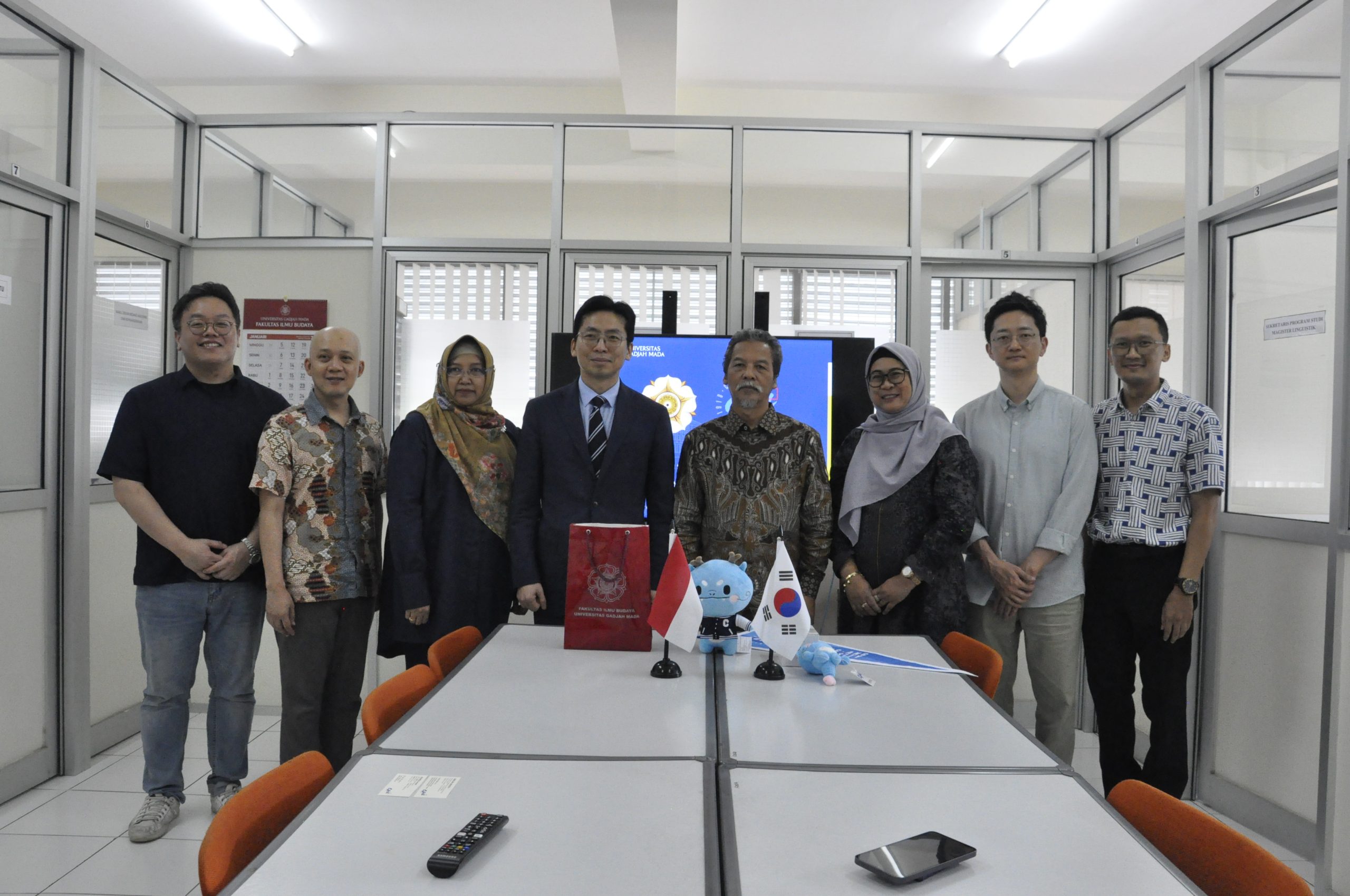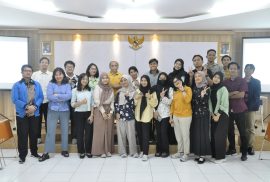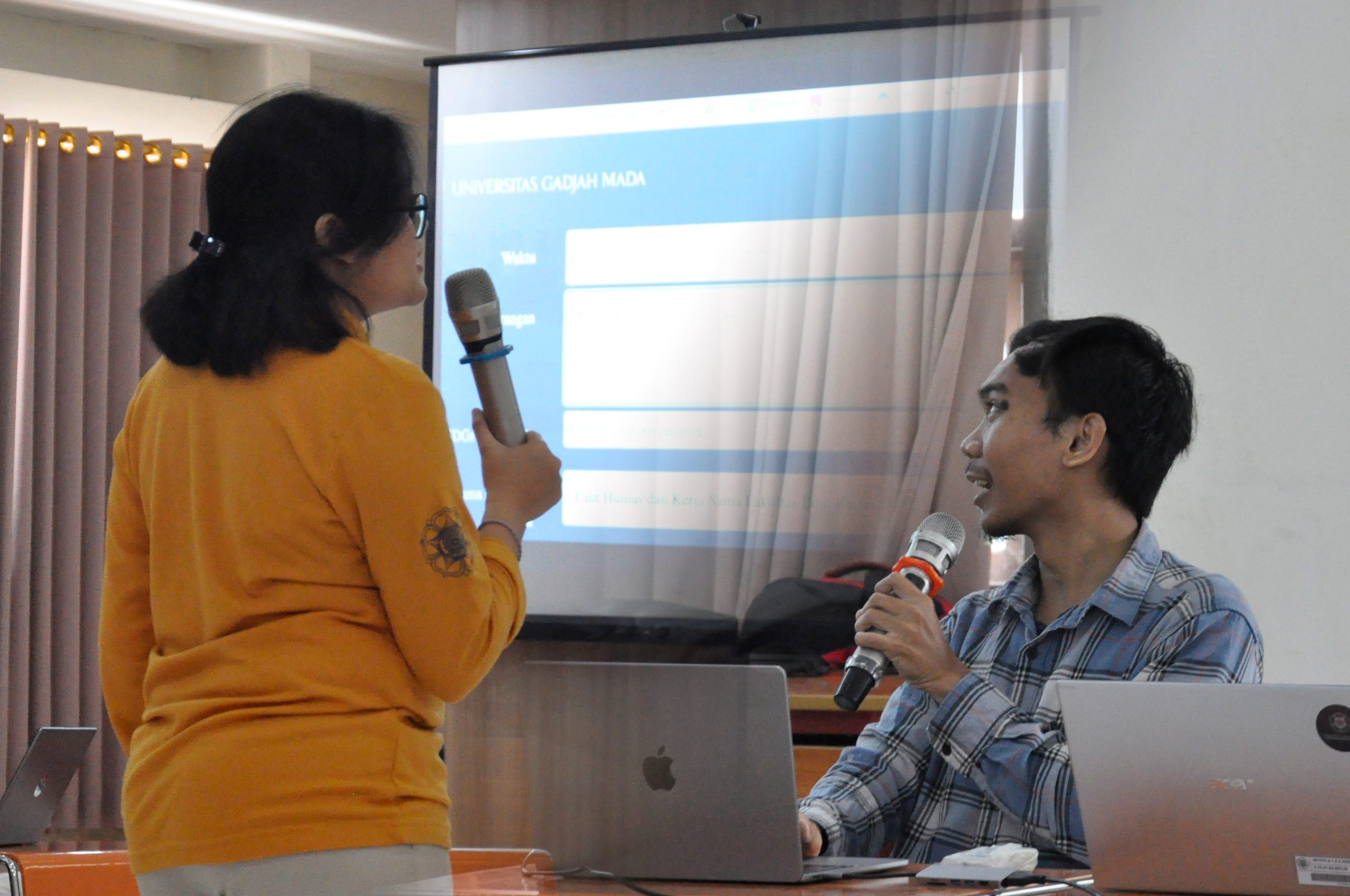Yogyakarta, 16/1/2025 – TIAS 2024 students shopped at Kranggan Market in a series of Indonesian language learning. The students practiced bargaining with fruit vendors in Indonesian. In doing this activity, students were accompanied by teachers and part-time students. By bargaining, students are expected to train their focus in listening and speaking Indonesian.
This out-of-class learning activity also gave TIAS students a new experience. Previously, the TIAS students had never been to a traditional market. One of the TIAS students expressed her amazement at traditional markets because she found the prices in traditional markets cheaper than in supermarkets. The student also said that she would find it easier to adopt a healthy lifestyle because of the affordable price of fruit. This activity provides long-term benefits for TIAS students considering that these students will study at UGM for several years to pursue bachelor/master/doctoral degrees. In addition, this activity was not only welcomed enthusiastically by TIAS students, but also fruit vendors. The vendors were entertained and amazed by the TIAS students’ ability to bargain. In addition, the students did not only buy fruit, but also traditional snacks. The students did not hesitate to taste traditional culinary in Kranggan Market, such as jenang, fried foods, and so on.
This out-of-class learning shows that language learning is not only limited in the classroom, but also outside the classroom considering that students will interact directly with the community during their stay in Indonesia. This activity is expected to build the confidence of TIAS students in dialoguing with friends, lecturers, and the community in Indonesian.
[Public Relation INCULS, Decika Syahda Maharani translated by Public Relation Faculty of Cultural Sciences, Bulan Churniati]

